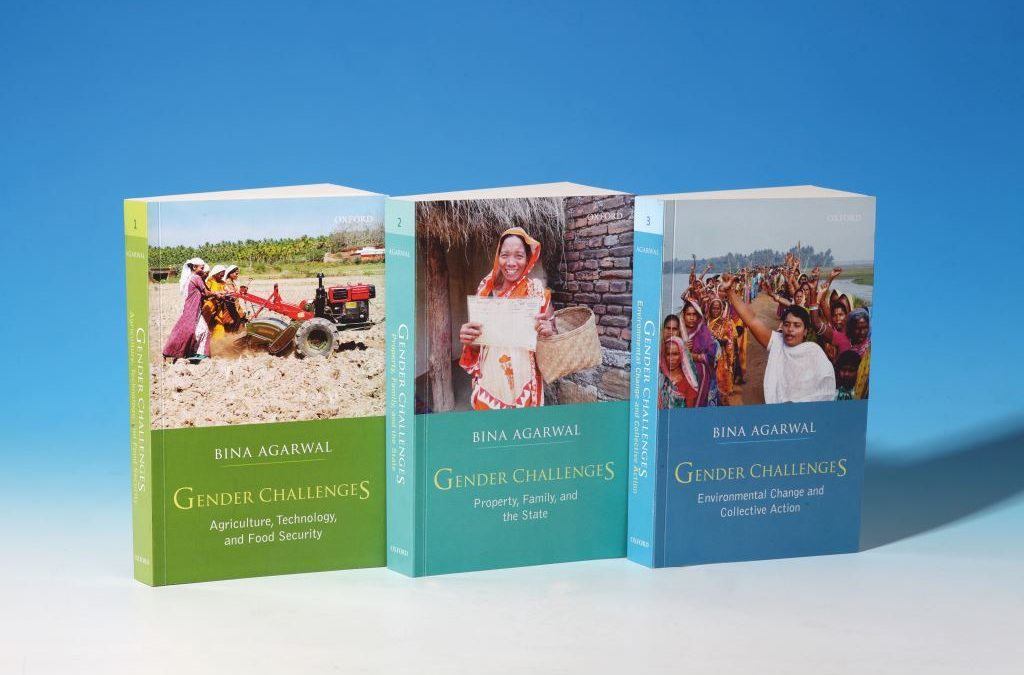
Bina Agarwal: Don’t follow the fashion. Challenge it.
In the last year, Professor Bina Agarwal has won three major international prizes for her work on gender, agriculture and development: the Agropolis Fondation Louis Malassis International Scientific Prize, the French Ordre du Mérite Agricole, and finally the Balzan Prize.
To mark this achievement, GDI’s executive director David Hulme recently presented Bina with a token of appreciation ahead of a GDI public lecture by Vijay Joshi. David remarked, “Getting one of these prizes in an academic career is excellent. Getting two is pretty much unheard of. Getting three in the same year is an achievement I’ve never seen before!”
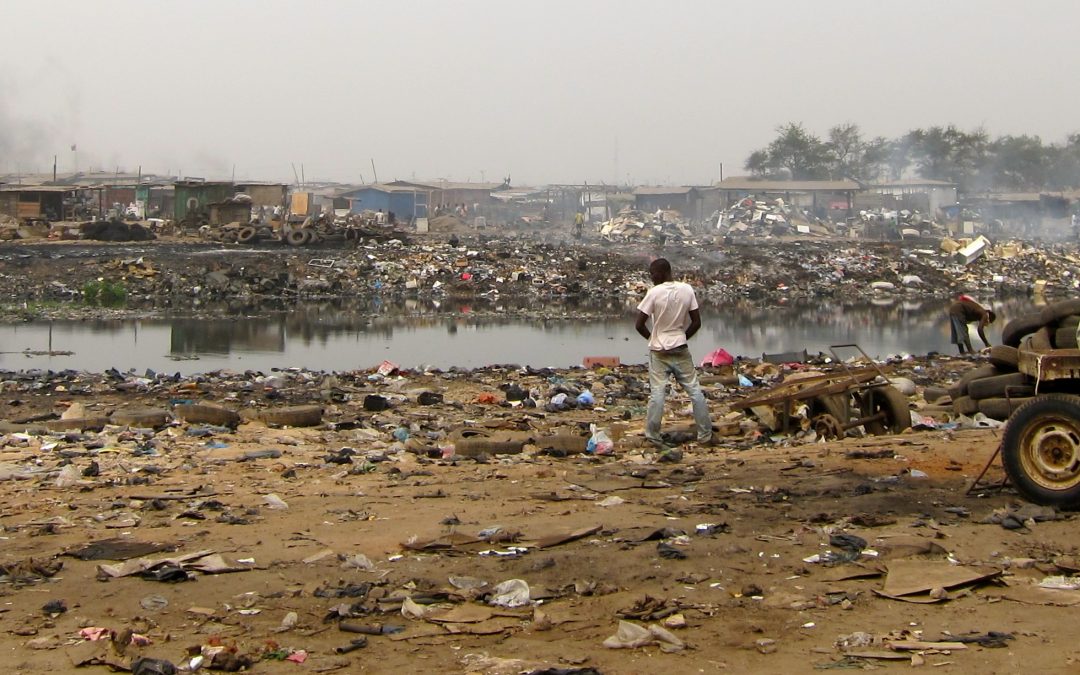
Voices from Accra
Introducing Old Fadama
This article is based on Laura v. Puttkamer’s Master’s dissertation from August 2017, with a summary of research results, drawing on interviews with local experts, who at their wish remain anonymous.
Old Fadama or ‘Sodom and Gomorrah’, as it is also known in Accra, is one of Africa’s and certainly Ghana’s largest informal settlement or slum. Roughly 200,000 people live near the Korle Lagoon and its tributary rivers in what is now Accra’s city centre. The settlement has been subject to various eviction attempts ever since its existence.
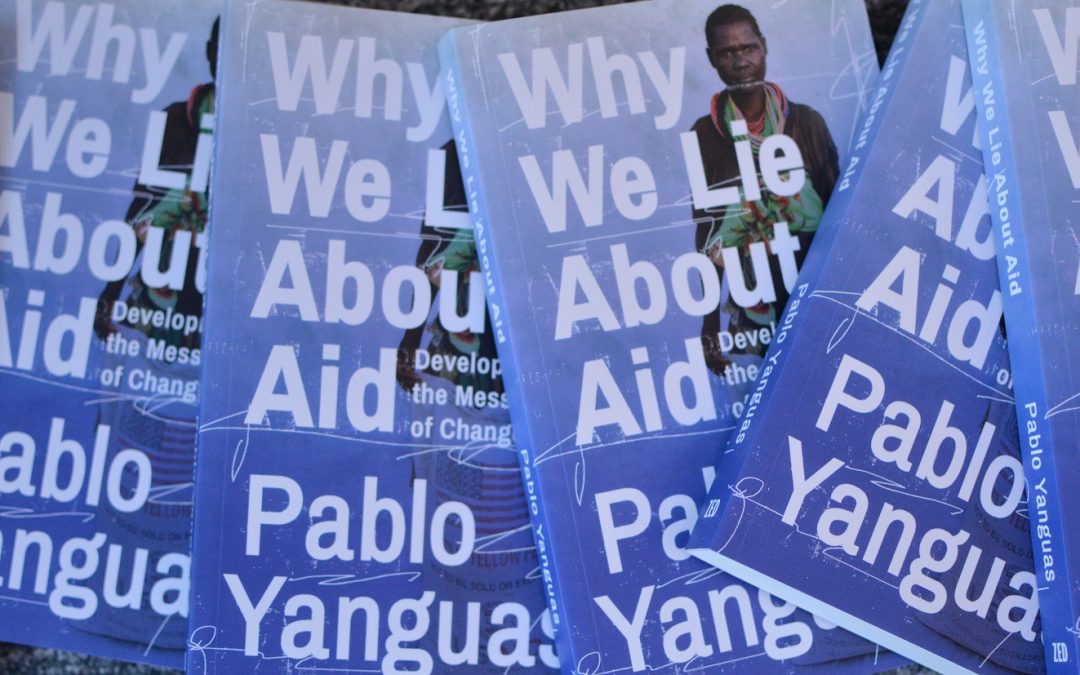
In conversation: Pablo Yanguas and Diana Mitlin
Listen to Diana Mitlin interview Pablo Yanguas about his new book Why We Lie About Aid which is out now on Zed books. They discuss the aid sector, accountability and the Department for International Development.

How I marvelled at Black Panther’s reimagining of Africa
Edward Ademolu, PhD Researcher, Global Development Institute
Watching Marvel’s highly anticipated comic-book film adaptation, Black Panther, was no ordinary tried and tested cinematic experience. Much like the unapologetic showmanship, flamboyance and atmospheric idiosyncrasies of Sunday service black congregational worship, the cinema metamorphosised beyond its remnants of unswept popcorn kernels and sticky milkshake residue into an augmented space. It became a “mega-church” sanctuary of spiritual catharsis –with all the impassioned and melodic trimmings of Afro-Pentecostalism.
But, make no mistake, this was not the time nor place for solemn contemplation or confessing past transgressions – but an opportunity for continental Africans and diaspora to offload socially sanctioned climactic expressions of individual and collective excitement and expectations, as well as lip-bitten anxieties about a fictionalised Africa. read more…
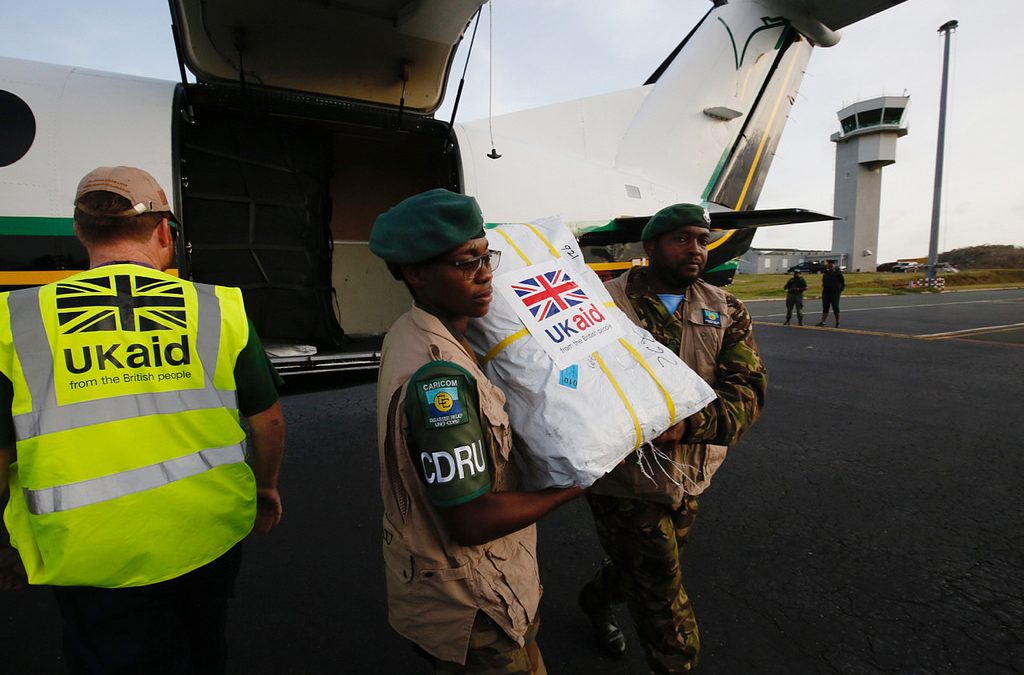
Why We Lie About Aid – in defence of hopeful pragmatism
Pablo Yanguas, Research Fellow, Effective States and Inclusive Development
Why We Lie About Aid is a book born out of bafflement, and not a little bit of frustration.
For a long time now I have been baffled about the apparent disconnect between how we – the public in donor countries – talk about aid as if it was solely about charity and poverty. I have seen friends, family and colleagues exposed time and again to donation drives, famine celebrities, and NGOs whose messaging centred on destitution. Or alternatively they have been told that aid is a waste of money, a useless or even corrupt tool for fattening experts and dictators. Both narratives stand in marked contrast with my research and consulting work, where I have encountered policymakers, public servants, civil society advocates, and development practitioners tirelessly working to set up and improve the institutions that can guarantee more effective states, fairer markets, and freer societies. I can only understand development – and, by extension, development assistance – as a political task. And yet that view has been all but absent from public debate, even among those most in favour of international solidarity. read more…
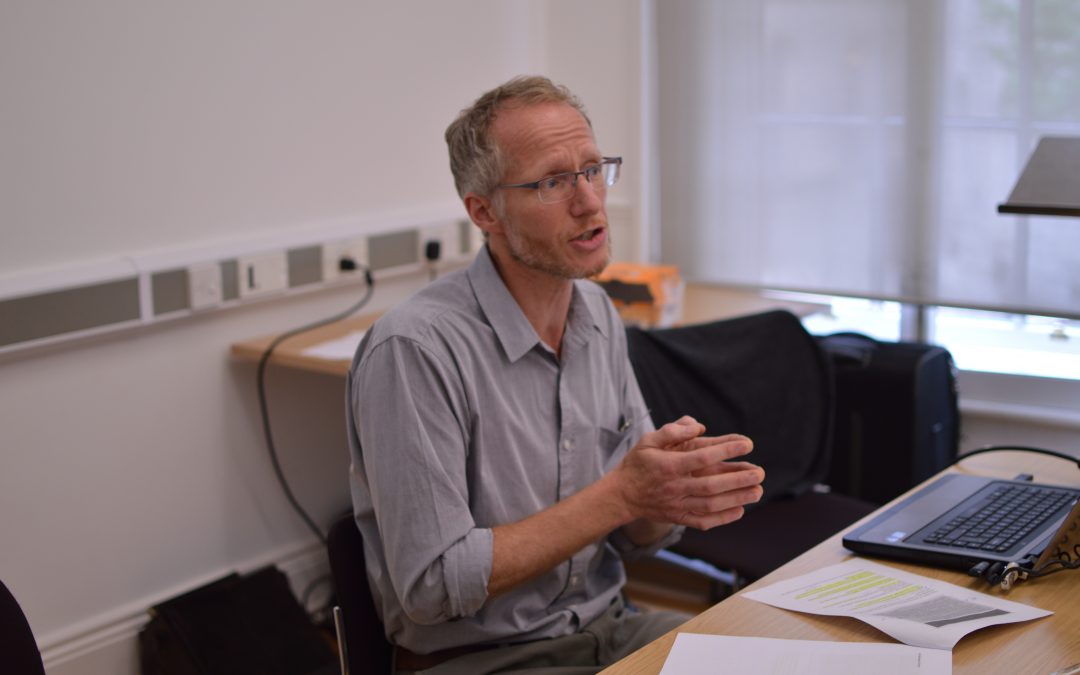
DSA Call for papers: Development Studies Association conference 27-29th June 2018
Academics from the Global Development Institute are helping to convene a number of panels at the annual Development Studies Association conference taking place 27-29th June at The University of Manchester. This year’s theme will be Global Inequalities and will challenge the traditional geographies of development, and demand investigation of the power relations that generate wealth and poverty within and between countries and regions. Conference panels will also emphasise the many dimensions of inequality, including gender, class, climate, race and ethnicity, region, nationality, citizenship status, age, (dis)ability, sexuality, and religion and the ways these reinforce or counteract each other.
There is a call for papers for all panels at the DSA Conference; visit the DSA website for more information. The deadline for submitting papers is 9 March. read more…
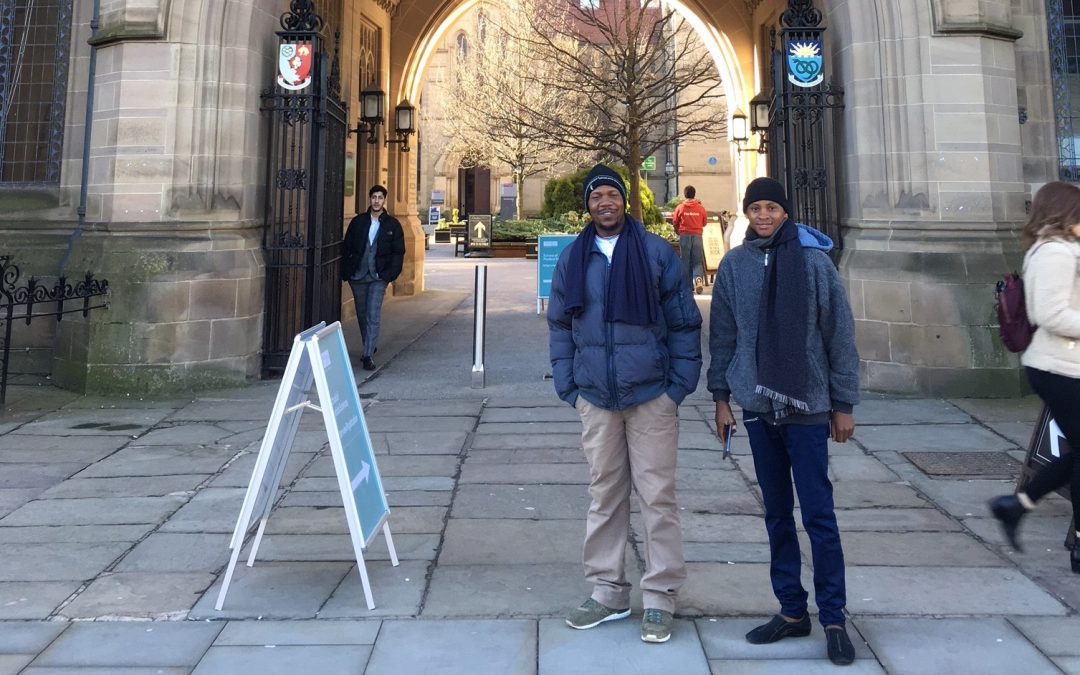
In Conversation: Nicola Banks, Fikiri Elias and Sadala Ismail
Listen to Nicola Banks, Global Development Institute, in conversation with Fikiri Elias and Sadala Ismail of the youth participatory development NGO Tamasha Vijana.
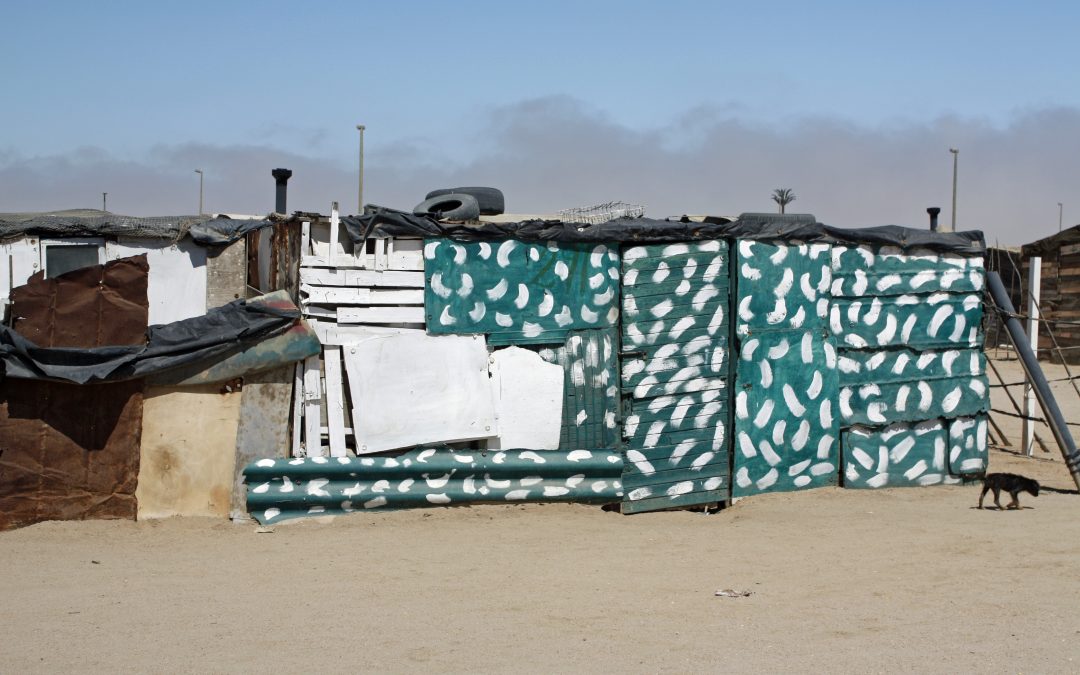
NUST hosts community lecture: channelling participatory upgrading experiences into university lecture rooms
George Masimba Nyama, Dialogue on Shelter
Months after starting the partnership project on upscaling participatory planning, the Bulawayo partnership has already begun a process of making sure that the community experiences start to filter into the academic sphere and vice versa. Recently, the parties gathered in Bulawayo, Zimbabwe for a community lecture hosted by the National University of Science and Technology’s (NUST) Faculty of the Built Environment. Communities from the profiled slums were also in attendance.
Meanwhile, the citywide profiling exercise has been ongoing with the parties updating existing profiles while also targeting new slums which have been identified. The community lecture, themed around “planning and cities urbanising informally”, focused on the citywide slum profiling experiences and the implications of these on the current city planning and development process.
Prior to the community lecture, 16 third-year students from the Faculty of the Built Environment joined the Bulawayo Federation teams during the slum profiling exercise. The fieldwork experience was meant to inform presentations and more precisely change ideas that would then be shared by participants at the community lecture. The fieldwork targeted Ngozi mine dumpsite, Iminyela, Vundu and Burombo hostels. The plan was to jointly document the socio-economic realities in these settlements and then use the lecture to trigger conversations around the practical steps the communities, in partnership with the local authority and the university, can begin to undertake.
read more…

Pablo Yanguas’ new book Why We Lie About Aid
We are pleased to announce Why We Lie About Aid, a book by Dr Pablo Yanguas research fellow with the Effective States and Inclusive Development Research Centre, is to be published on 15 February.
- You can pre-order your copy here.
Foreign aid is about charity. International development is about technical fixes. At least that is what we, as donor publics, are constantly told. The result is a highly dysfunctional aid system which mistakes short-term results for long-term transformation and gets attacked across the political spectrum, with the right claiming we spend too much, and the left that we don’t spend enough. read more…

The Global Compact for Migration and #Refugees4Sale
Dr Tanja R. Müller, Senior Lecturer in Development Studies
The week that saw the release of Zero Draft of the Global Compact for Safe, Orderly and Regular Migration also saw multiple protests in front of Rwandan embassies in many countries, including the UK, Germany, Israel.
Under the slogan Tell Rwanda No Refugees4Sale these protests were aimed at the new Israeli Prevention of Infiltration Act that was passed in December 2017, and its policy implementation. Starting on Sunday 4 February, a day before the publication of Zero Draft, expulsion orders were issued to African migrants/refugees mainly from Eritrea and Sudan: the order gives them the choice to be sent to a ‘third country’ by the end of March, or face detention and imprisonment. The ‘third country’ has not been named but it is common knowledge that options are Rwanda and Uganda. The receiving countries reportedly receive US$5000 per refugee they accept, while the refugees themselves receive a plane ticket plus US$3500 each.
These protests go to the heart of what is lacking in the Global Compact, and they ultimately go back to the age-old question of guaranteeing supposedly universal human rights in actual political space. This space is controlled by nation states and based on increasingly exclusionary politics, not only in Israel but the world over, as a brief look at such different settings such as Hungary, Poland and the US among others testifies to. read more…
